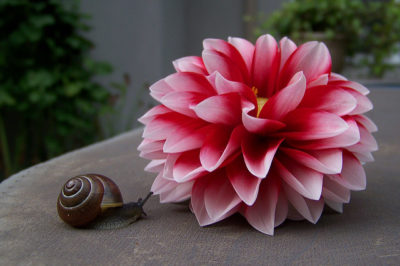by Anna Magtalas
‘Welcome to the real world!’ Amidst the bustle of fresh graduates wearing their hard-earned togas and caps, their equally excited families and friends greeting and celebrating with them, this all-too-famous line would surely not go unsaid.
The real world – this is what people use to refer to entering the workforce, earning for a living, paying expenses, and generally going through the phase we now call ‘adulting’. When we look all over social media, adulting is generally depicted as a constant struggle of setting-up the alarm clock early in the morning only to snooze it every five minutes for the next thirty minutes, finally waking up and taking a quick shower, rushing to the public transportation with a half-eaten breakfast, and settling at the desk for the next nine hours with piles of emails to reply to and meetings to attend to. If one is lucky enough to be able to fight the urge of collapsing into bed as soon as they arrive home, they can insert an hour of work-out or a dinner with friends into this packed schedule.
This prompts the question – is this ‘real’ world which most of us dive into soon after graduation really the one where we are constantly obligated to accomplish things not necessarily because we want to but because we need to?
Sheila has loved reading books ever since she was a child. She has found deep meaning in the way words, when arranged in specific sequences, are able to form worlds that resonate with her and with other people from all parts of the globe. Because of this, she has always wanted to be a writer. Upon researching possible career opportunities for different college programs, she finds that graduates with business degrees had the most chance to land a secure job after graduation. She finishes her degree and gets a managerial position soon after graduation. She has not forgotten her dream of becoming a writer and still plans to pursue this, even as a hobby. However, being a manager requires a lot of focus and dedication, so she promises herself that she will just pursue her dream in the future, when her life has settled more.
Sheila is an example of countless people who, in the process of finding the kind of life which will pay bills and provide a decent lifestyle, inadvertently gave up their childhood worlds of writing storybooks, performing at theatres, and painting masterpieces for a world of working routine but secure day jobs.
One of the most common getting-to-know activities for children during their first day at school is the teacher asking them what they want to be when they grow up. For first-graders, answers would usually range from being an astronaut, to being a veterinarian, to being a lion tamer, to being the president of the country. However, only a small percentage of these kids actually pursue what they initially said they wanted to be. Most of them would become businessmen, lawyers, doctors, or engineers. The once bizarre dreams they had become more and more limited as time passes by. It seems that for most, part of growing older is seeing the world shift from being our oyster to being a world which lets us have our desired lifestyle.
If we ask a child what questions keep them up at night, we might expect to receive an array of answers like ‘How big is the universe?’, ‘Where does God live?’, ‘Why do people cry when they’re sad?’, and a lot more. If we ask an adult what keeps them up, on the other hand, most of the questions would be on the lines of ‘When would I be promoted?’, or ‘When would I be able to buy this car?’ among others. Why is it that as we age, the things that bother us transform from profound and sometimes peculiar matters to more political or practical issues?
The world that children live in, it appears, is one beyond this world we call earth. Children are curious about what lies outside of earth – why the stars exist, where their pets go after they die, and why Santa Claus like cookies. The world adults live in, or the ‘real’ world, seems to be one where the so-called ‘important’ things – like how one can arrive on time despite the heavy traffic, or why the prices of gas continue going up – are what matter most.
One can argue that children think and behave differently because they are not yet aware of the responsibilities that adults must think of. They depend on their parents or on other adults for their basic needs, and therefore do not need to think of the affairs in the world. Adults, however, have other people who depend on them and therefore have the responsibility and obligation to focus on things that are practical and necessary. This is, of course, understandable, but when we look deeper into ourselves, can we say that this practicality only goes as far as our responsibilities reach? Has this focus on worldly things not been embedded into our core beliefs, extinguishing the flame of curiosity and imagination that once kept us up at night?
As adults, it is easy to get consumed by the myriad of things we do every day – work, business, social calls, and others – and overlook our need to relax, breathe, and just be present to fully experience the moments we are currently in. This preoccupation tends to keep our focus on our day-to-day tasks and detaches us from the world and everything around us. Our connection with the world, once fuelled by our keenness to learn and experience things around and beyond us, is now just fuelled by our need to accomplish our tasks and live one day at a time.
This is where an important human experience called Self-Transcendence comes in. This experience is described in the paper The Varieties of Self-Transcendent Experience as ‘… [the] sense of one’s self as an isolated entity… temporarily fad[ing] into an experience of unity with other people or one’s surroundings, involving the dissolution of boundaries between the sense of self and “other.”’[1] We are self-transcendent when we temporarily forget ourselves as individuals and let our surroundings unite with us. We feel transcendence when our consciousness reverts from the basic and day-to-day tasks to a unity with nature or other people. This is an important experience as it allows us to disconnect from our everyday activities and form a deeper connection with the things and people around us.
This Self-Transcendence, considered by many as spiritual, is usually experienced by people from time to time. When we look at our surroundings – how the trees sway with the wind, how the birds’ chirps complement the laugh of children playing in the park, and how the grass cracks beneath our feet – and find joy in just being present to experience these, we can say that we have transcended ourselves and become one with the world.
As adults, this may be difficult to experience, especially with the hustle and bustle of life. However, as beings in the world, we are inherently one with it and everything in and beyond it. It is in our core to be part of something bigger and to explore the world and what is beyond everything we see. Children, without their need to work for their living blocking their way, see and experience this more clearly. As adults, these fleeting transcendent experiences should remind us that the ‘real’ world is not necessarily the world as we see it in our day-to-day lives, but more importantly the world that we see when we take a step back and let our surroundings unite with our thoughts and imaginations, the way they did when we were children.
Picture from flickr.com/photos/quacktaculous/
[1] Yaden, D. B., Haidt, J., Hood, R. W., Jr., Vago, D. R., & Newberg, A. B. (2017, May 1). The Varieties of Self-Transcendent Experience. Review of General Psychology. Advance online publication. http://dx.doi.org/10.1037/gpr0000102






